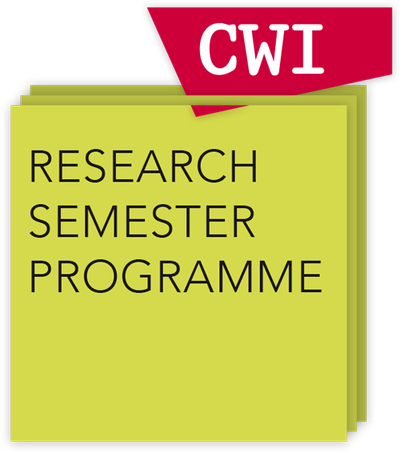
Why?
A central challenge in solving real-world optimization problems is the lack of a systematic process. Existing approaches largely either adjust the problem representation to match a specific algorithm (problem formulation / modelling) or customize an algorithm to fit the problem (e.g. custom variation operators). This hinders progress in algorithm research because the learning from applications cannot be generalized.
During this Semester Programme, we aim to bring together researchers and industry practitioners with experience on real-world problems. Together, we will create a systematic overview of practically used tailoring processes for solving optimization problems and generalize them.
What?
As a first step, we will collect as much as we can about the intuitions experienced researchers have developed when tackling real-world optimization problems. In some cases, they might already have some relatively formal process that works well for them. However, this process is likely specific to the types of problems they encounter and the algorithms they know well, as well as potential practical restriction (contacts, availability of software). In other cases, their experience might only be codified as anecdotes or intuition.
The crucial challenge is sharing this experience in order to allow drawing general conclusions and avoid repeating past mistakes, so that the field can make faster progress. Our goal is thus to organize information on process, as well as anecdotes, in a manner that it is searchable and retrievable for everyone, i.e. a resource through which experience and intuition can be shared and discussed. This also democratizes this topic, as it no longer requires gaining the experience through direct interactions with more experienced researchers.
Some old textbooks exist that seek to communicate advice for tailoring methods, but they require updating for modern optimization methods and modern infrastructure. Specifically, our modern benchmarks and ability to process large amounts of data were just not existent more than 30 years ago.
How?
This project is organized as a Research Semester Programme (RSP), an initiative launched by CWI to facilitate and accelerate joint research endeavours in maths and computer science. Through this programme, we will be organizing several in-person meetings at CWI, which we will use to collect information and make connections. This will be supplemented by online (hybrid) meetings to continue the momentum and process and collate the gathered information. We will also maintain a newsletter-style mailing list and a forum for online discussions and information sharing.
Our aim is to produce a resource that can be easily maintained after the official end of the RSP, and potentially serve as the starting point for a follow-up project.
When and where?
Please find the upcoming planned events below. More smaller events will be added as needed during the runtime of the programme.
Due to the limited capacity, we have several meetings that are invite-only, so that we can ensure a broad range of experiences present. If you would like to participate in any events or join the online discourse, do not hesitate to get involved.
Kick-Off Meeting (invite only)
Dates: 14+16 January 2026
Location: CWI, Science Park, Amsterdam, Netherlands
Purpose: Establish a way to collect and organize tailoring experiences and guidelines.
Visit the event page on Kick-Off Meeting
Dagstuhl Seminar (invite only)
Dates: 9-13 February 2026
Location: Castle Dagstuhl, Wadern, Germany
Purpose: Extending to the global research community.
Visit the event page on Dagstuhl
Wrap-up meeting (invite only)
Dates: 21-22 May 2026
Location: CWI, Science Park, Amsterdam, Netherlands
Purpose: Summarize information, ensure long-term maintenance and plan next steps.
Who?
Get involved
Does this programme sound interesting to you? Are you a researcher or industry practitioner in optimisation interested in tackling real-world problems collaboratively? Please use this participation form to express your interest in the programme as a whole or in specific events.
Organizers
- Vanessa Volz (CWI),
- Laurens Bliek (TU Eindhoven),
- Anton Bouter (CWI),
- Mike Preuss (Leiden University),
- Elena Raponi (Leiden University),
- Dennis Soemers (Maastricht University).
Library
- L. Davis, Handbook of Genetic Algorithms, Chapman & Hall, London, 1991.
- T. Bäck et al, Handbook of Evolutionary Computations, CRC Press, 1997.
